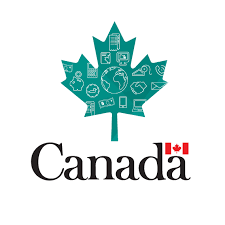
Closed
Canada Carbon Rebate for Small Businesses
Last Update: October 27, 2025
Canada
Refundable tax credit for eligible small Canadian-controlled corporations
Tax Credits
At a glance
Funding available
Financing goals
Reduce the ecological footprint
Eligible Funding
- No Condition
Timeline
- Receipt of requests is now closed
Eligible candidates
Eligible Industries
- All industries
Location
- Canada
Legal structures
- For-profit business
Annual revenue
- All revenue ranges
Organisation size
- 499 employees maximum
Audience
- Indigenous Peoples
- Canadians
Overview
The Canada Carbon Rebate for Small Businesses is a refundable tax credit that returns a portion of federal fuel charge proceeds directly to eligible Canadian-controlled private corporations, based on the number of employees in designated provinces and applicable years (2019-2023). The maximum funding per employee varies by province and year, with amounts ranging from $26 to $271 per year, supporting small businesses impacted by the federal fuel charge.
Activities funded
- Direct remuneration paid to privately held Canadian-controlled companies for employing personnel in designated provinces, as part of their ongoing activities subject to the federal fuel charge.
Examples of admissible projects:
$ 42,000
Upgrade to LED lighting throughout a commercial office building
$ 57,400
Acquisition of energy-efficient fleet vehicles for home delivery
$ 10,100
Development of a composting system for small urban farms
$ 39,900
Purchase and installation of a rooftop solar panel array
$ 16,100
Installation of high-efficiency heat pumps in a community center
$ 23,500
Upgrade of industrial machinery with automated energy monitoring devices
Eligibility
- The applicant must be a Canadian-controlled private corporation (CCPC), including eligible Indigenous CCPCs.
- The corporation must have employed one or more persons in a designated province during the applicable year.
- The total number of employees across Canada must be 499 or fewer during the applicable calendar year.
- The corporation must have been a CCPC at all times during the applicable taxation year.
- A 2023 corporate income tax return (T2) must be filed by the prescribed deadlines to qualify for retroactive payments.
Who is eligible?
- Canadian-controlled private corporations (CCPCs), including Indigenous CCPCs
- Subsidiaries of larger corporate groups, provided the subsidiary itself has 499 or fewer employees and a separate corporate tax account
Who is not eligible
- Cooperatives and credit unions.
- Companies that are not Canadian-controlled private corporations (CCPCs).
- Businesses with over 499 employees in Canada during the applicable calendar year.
Eligible geographic areas
- Alberta (for the years 2020 to 2023)
- Saskatchewan (for the years 2019 to 2023)
- Manitoba (for the years 2019 to 2023)
- Ontario (for the years 2019 to 2023)
- New Brunswick (for the year 2023)
- Nova Scotia (for the year 2023)
- Prince Edward Island (for the year 2023)
- Newfoundland and Labrador (for the year 2023)
How to apply
1
Check eligibility requirements
- Verify that your corporation is a Canadian-controlled private corporation (CCPC), including Indigenous CCPCs
- Ensure your business employed at least one person in a designated province during the applicable calendar year
- Confirm you had 499 or fewer employees across Canada during the applicable year
- Check that cooperative and credit union structures are not eligible
2
File T2 corporate return
- File your 2023 corporate income tax return (T2)
- Submit no later than July 15, 2024, to receive timely payment
- If filing after July 15, 2024, ensure submission is completed by December 31, 2024, for retroactive rebate eligibility (conditionally, subject to legislative approval)
3
Automatic assessment and calculation
- No application is required; eligible businesses will be automatically assessed
- The amount received is based on designated provinces, number of employees, and fixed federal fuel charge rates per year
4
Receive payment and resolve issues
- Receive the payment automatically by direct deposit or cheque once eligibility and calculation are confirmed
- If you do not receive the payment or the expected amount, verify eligibility, ensure T2 is filed, and check for outstanding debts
- Contact the CRA for unresolved issues
Additional information
- The Canada Carbon Rebate for Small Businesses is automatically calculated and issued; no application is required if you qualify.
- Under current legislation, the rebate is taxable and must be declared as government assistance on the T2 corporation income tax return for the year it is received.
- If the law changes to make the rebate tax-free, the CRA will provide instructions for amending past returns.
- Payments may be delayed for returns filed after July 15, 2024, or if there are issues such as outstanding tax debts or required business information updates.
Apply to this program
Frequently Asked Questions about the Canada Carbon Rebate for Small Businesses Program
Here are answers to the most common questions about the Canada Carbon Rebate for Small Businesses. This section explains what the program is, how much funding is available, eligibility requirements, application deadlines, and other important details to help you determine if this grant is right for your business.
What is the Canada Carbon Rebate for Small Businesses?
Who is eligible for the Canada Carbon Rebate for Small Businesses program?
What expenses are eligible under Canada Carbon Rebate for Small Businesses?
Where is the Canada Carbon Rebate for Small Businesses available?
Is the Canada Carbon Rebate for Small Businesses a grant, loan, or tax credit?
Who are the financial supporters of the Canada Carbon Rebate for Small Businesses?
Apply to this program
More programs like this
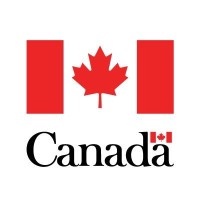
Tax CreditsOpen
Clean Technology Manufacturing (CTM) Investment Tax Credit (ITC)
Canada Revenue Agency (CRA)Incentivize Canadian companies to invest in clean technology

Tax CreditsOpen
Clean Technology (CT) Investment Tax Credit (ITC)
Natural Resources Canada (NRCan)Offer up to 30% refundable credit for capital investments in new clean technologies in Canada

Grant and FundingClosed
Green Industrial Facilities and Manufacturing Program (GIFMP) — Industrial Facility Track
Natural Resources Canada (NRCan)Support for the implementation of energy efficiency and energy management solutions

Grant and FundingOpen
Incentives for medium and heavy-duty zero-emission vehicles (iMHZEV) Program
Transport Canada (TC)Incentives to purchase or lease medium- heavy-duty ZEVs
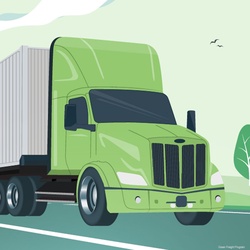
Grant and FundingOpen
Green Freight Program — Assess and Retrofit
Natural Resources Canada (NRCan)Supports energy-efficient retrofits for Canadian freight fleets
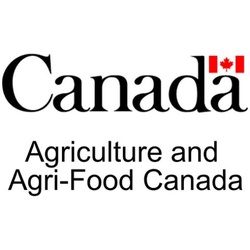
Researchers And FacilitiesPartnering and CollaborationGrant and FundingClosed
AgriScience Program – Clusters
Agriculture and Agri-Food Canada (AAFC)Funding for agricultural research and innovation collaboration
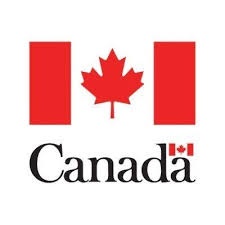
Grant and FundingClosed
Canada Public Transit Fund
Housing, Infrastructure and Communities Canada (HICC)Supports long-term public transit and active transportation infrastructure development
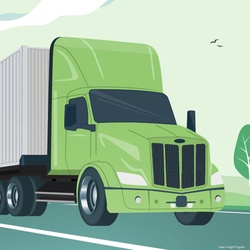
Grant and FundingClosed
Green Freight Program — Repower and Replace
Natural Resources Canada (NRCan)Funding for Canadian freight industry to reduce emissions

Grant and FundingOpen
NRC IRAP – Support for clean technology
National Research Council Canada (NRC)Funding for Canadian SMEs advancing innovative clean technology commercialization

Grant and FundingLoans and Capital investmentsOpen
APCHQ — Get financing through the Canada Greener Affordable Housing program: Retrofit Funding for multi-unit residential buildings
Association des professionnels de la construction et de l’habitation du Québec (APCHQ)Financing for deep energy retrofits in affordable multi-unit housing
Sign up to our platform to access the Canada Carbon Rebate for Small Businesses information sheet for free
Get access to 4,000+ programs, practical guides, personalized alerts, and an AI assistant to support your grant applications.